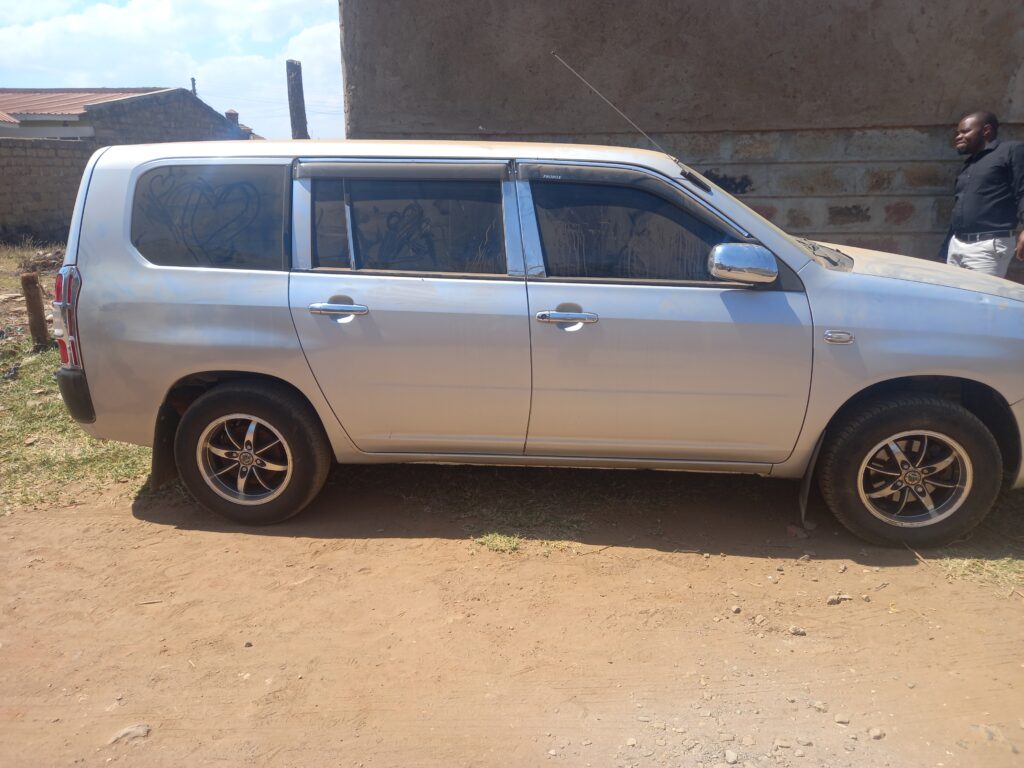Land Vs Car, Which One Should Come First?

Investments either in a piece of land or a vehicle is all about buyer preference. But there has always been a divisive debate on what between the two should come first. So which ought to come first?
Andrew Kari, 28, is thinking about investing within a year or so. For young men and women about his age and are just about done with the hippy and adventurous lifestyle, two investment options feature prominently.
Should it be a car or a parcel of land?
“After three years of an adventurous young life and miserly contract and commission jobs, I now earn enough to allow me to pay my rent, service and utility bills, buy my food and clothing, enjoy the pleasures of life and have enough to save,” Kari begins.
“At the moment, I am unable to invest in both options. I am in the process of deciding on which one to take first. Friends and family have advised differently on what should be my first investment option, so I am yet to decide,” he says of the choice between a car and land.

“I have thought of investing in my first car, a sports car maybe, for about Sh. 1.6 million; a BMW, perhaps. This would mostly be for status sake because I do not live far from my workplace and commuting is not a hustle. I do not have a family yet. I also have in mind that the status car may not be suitable for when I have a growing family.
“My other investment option is land, as buying a ready house is still beyond me. I have talked to a number of my friends and family, and most of my male age mates advise that I buy a car, arguing that it is still too early to get into serious investments like land. They say that a car will not only be a statement, but also be an easier way to move from one ‘happening’ joint to another.
“My family, especially my mum, is open to whatever my heart desires, but she is more inclined towards me investing in land. She says that even if I do not build on it, land value appreciates with time.
“I am yet to decide, but I am leaning towards the land option more and more, because with time, I will have a family of my own that will need to be sheltered in a bigger house. That means paying more rent, though I also know that they will need to move here and there, and a car will come in handy then.”
Mr Kariuki Waweru, a property valuer and real estate investment advisor, says it will make more economic sense for Kari to invest in a parcel of land or a two-bedroom apartment.
“At the end of seven years, the value of the car will have depreciated to about 30 to 40 per cent of its initial value, and may need a change of many parts or even its whole body,” says Mr Waweru.
“On the other hand, real estate is durable, and the land underneath a development is practically indestructible. It can also be bought with the expectation of attaining a better return on investment,” Waweru adds.
He argues that it is also probable that the car owner will still be living in a rented house and thinking of buying a bigger car to fit their new position at work or the growing family.
He says: “If this math holds true, in seven years, one who chooses to invest in the vehicle will have forfeited owning a two-bedroom master en suite apartment in the outskirts of the capital city, or buying a plot of land and building a house to shelter his/her family.”
Cash is always in short supply for many university students and saving is the last thing on their minds. However, Moses Muriithi went against the grain and started saving to raise capital for a real estate business when he was a third-year student at Kenyatta University.
Mr Muriithi dreamt of going into business straight from campus and he was determined to raise capital at all costs. That he saved part of the Higher Education Loans Board (HELB) credit is a testimony to his burning desire to realize this ambition.
His target from the start was real estate business and immediately after stepping out of campus he set up his company known as Fanaka.
“While in the university I did online jobs such as data entry and website designs and got paid through PayPal. Whatever I earned I used to invest in land,” he says.
“By the time I started Fanaka in 2015 I already had several plots to start with. As a result of my small earnings together with some cash I had saved from HELB loans I had some Sh.40,000 which I used as capital.”
He used part of this amount to acquire an online account which he used to source contracts from foreign organizations for IT-related tasks.
“Mostly I handled web designing and data entry where I could earn up to Sh.100,000 a month,” he explains adding that after four years he had already accumulated five 50 by 100 plots valued up to Sh1.4 million.
His firm has now made great strides, handling a long list of customers. It focuses on low and average income earners who are looking to own land or house on the outskirts of Nairobi.
“Our projects mainly target people who under normal circumstances wouldn’t be considered wealthy. Our average price for land is Sh.450,000,” he says.
“Most of the pieces of land we sell range from an eighth to a quarter of an acre.”
The company, which operates in Ruai area of Nairobi, has already completed six projects in the past 12 months.
“Already we have completed two projects in Kamulu and Joska, one in Ruiru East, another one in Kamakis, Ruiru and one in Malaa,” he reveals.
In two years the enterprise has grown rapidly, recording a Sh.80 million turnover last year.
“Our profit margins are low but we strive to make a lot of sales to earn more,” he says.
He has eight people employees who are on permanent terms.
To attract customers, the firm ensures that the pieces of land it sells are in good locations with necessary amenities such as water, electricity and all weather roads.
“This makes it possible for clients to develop them. That these plots are not far from the city is also our high selling point,” Mr Muriithi says.
The firm also ensures it conducts due diligence on all transactions to ward off fraud. The integrity of the deals, he says, has given his firm an edge in a sector swamped by con artists swindling unsuspecting victims.
“We ensure the plots have ready titles to facilitate the client’s in doing the search at the lands offices before they commit themselves. We also make sure the plots are affordable to even low income earners, with some of our plots going for as low as Sh.300,000,” he says.
The entrepreneur credits his success to their flexible modes of payment where a client can pay 30 per cent deposit and the balance paid in one year. The firm is also tapping on social media, property sites and their website, fanaka.co.ke as marketing and advertising tools.
But as any business, Mr Muriith’s venture is not short of challenges, the key of which is getting enough funds for expansion.
“Also land brokers who at times exaggerate land prices have proven to be a thorn in the flesh, but with time we have managed to deal with them,” he says.
His advice to those new in business (Real estate companies in Kenya) is to ensure integrity and transparency reigns adding that clients keep referring other people because of the trust created.
“They also need to be patient. It took me about 4 months in business to sell the first plot,” he adds as he challenges his fellow youth to create job opportunities instead of waiting to be employed.
*Finally*
The story of wealth creation is the back-bone of the structures that exist in our society today. At one point in time, we are all at the starting point (like in a marathon race).
We all live in a bucket-carrying world. But who are you? Are you a bucket carrier or a pipeline builder?
The problem with the bucket-carrying strategy is that it gets a bit tiring and monotonous with time. And you can easily find yourself jobless anytime – which means the concept of a “secure job” is actually an illusion.
Intelligent, wealthy people are pipeline builders. Make a point of joining them today.
Timothy Angwenyi
Business Consultant
Justine Nyachieo
Business Man & Mentor








